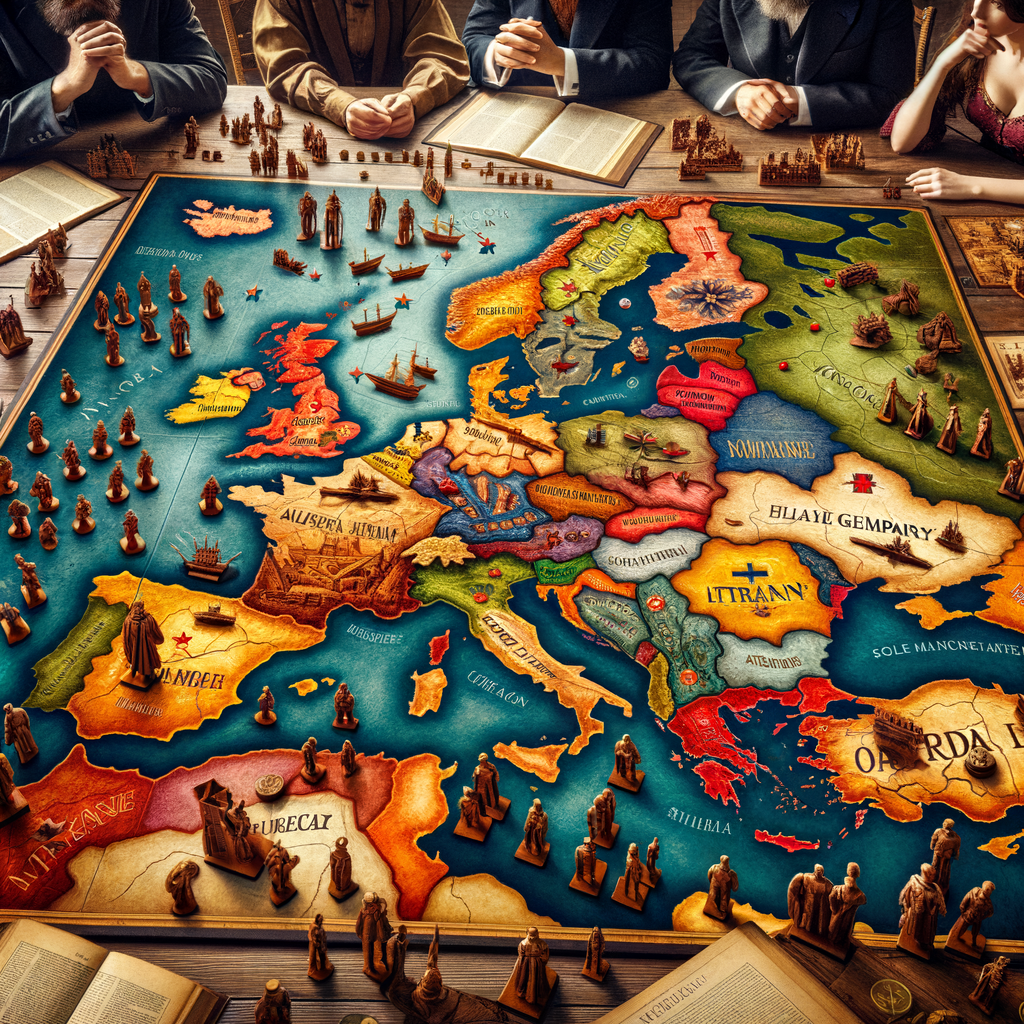Understanding Diplomacy: A Game of Strategy and Negotiation
Diplomacy is a classic board game that combines strategy, negotiation, and tactical planning. Unlike many other board games, Diplomacy does not rely on chance or dice rolls; instead, it challenges players to use their wit and persuasive skills to outmaneuver their opponents. Created by Allan B. Calhamer in 1954, the game has captivated players for decades with its unique blend of strategic depth and social interaction.
What is Diplomacy?
Diplomacy is a multi-player board game set in Europe during the early 20th century. The game accommodates seven players, each representing one of the major powers of the era: Austria-Hungary, England, France, Germany, Italy, Russia, and Turkey. The primary objective is to gain control of Europe by occupying key supply centers, with victory achieved when a player controls more than half of the available centers.
What sets Diplomacy apart from other games is its emphasis on alliances and betrayals. Players must negotiate with each other to form temporary alliances, collaborate on strategies, and ultimately decide when to break those alliances to advance their own position. This dynamic creates a constantly shifting landscape of trust and deceit, making every game a unique experience.
How to Play Diplomacy
Playing Diplomacy requires a balance of strategic thinking and effective communication. Here is a step-by-step guide on how to play:
Setting Up the Game
Each player chooses or is assigned a country to control. The board is set up with each country’s armies and fleets positioned in their respective starting locations. Players should familiarize themselves with the map and the location of supply centers, as these are crucial to gaining power.
The Phases of the Game
Diplomacy is played over a series of game years, each divided into two main phases: the Spring and Fall turns. Each turn consists of three phases: the Diplomacy Phase, the Order Writing Phase, and the Order Resolution Phase.
Diplomacy Phase
During the Diplomacy Phase, players discuss strategies, form alliances, and negotiate with one another. This phase is crucial, as the agreements made will influence the actions taken in the subsequent phases.
Order Writing Phase
In the Order Writing Phase, players secretly write down their orders for their units. Orders can include moves, supports, or holds, and must be carefully planned to align with the player’s strategy and any agreements made during the Diplomacy Phase.
Order Resolution Phase
During the Order Resolution Phase, all orders are revealed and resolved simultaneously. This is where players see if their negotiations were successful and if their strategies paid off. Conflicts are resolved using specific rules, with the outcome affecting the control of territories and supply centers.
Winning the Game
The game continues with players maneuvering their units, forming and breaking alliances, and strategically occupying supply centers. The first player to control 18 supply centers is declared the winner, achieving dominance over Europe.
Strategies for Success
Success in Diplomacy requires a blend of strategic foresight and interpersonal skills. Here are some tips to enhance your gameplay:
- Build Trust: Cultivate relationships with other players to form strong alliances. Trust is a valuable currency in Diplomacy, but be prepared to adapt when alliances shift.
- Plan Ahead: Always think several turns ahead and anticipate potential moves from your opponents. A well-timed betrayal can turn the tide in your favor.
- Communicate Effectively: Clear and persuasive communication is key. Articulate your plans and intentions, but also be adept at reading between the lines of others’ communications.
- Adaptability: The game board can change rapidly, so flexibility in your strategy is essential. Be ready to pivot and seize opportunities as they arise.
In conclusion, Diplomacy is a captivating game that tests both strategic acumen and social skills. By mastering the art of negotiation and strategic planning, players can experience the thrill of outwitting their rivals and achieving dominance on the European stage.



